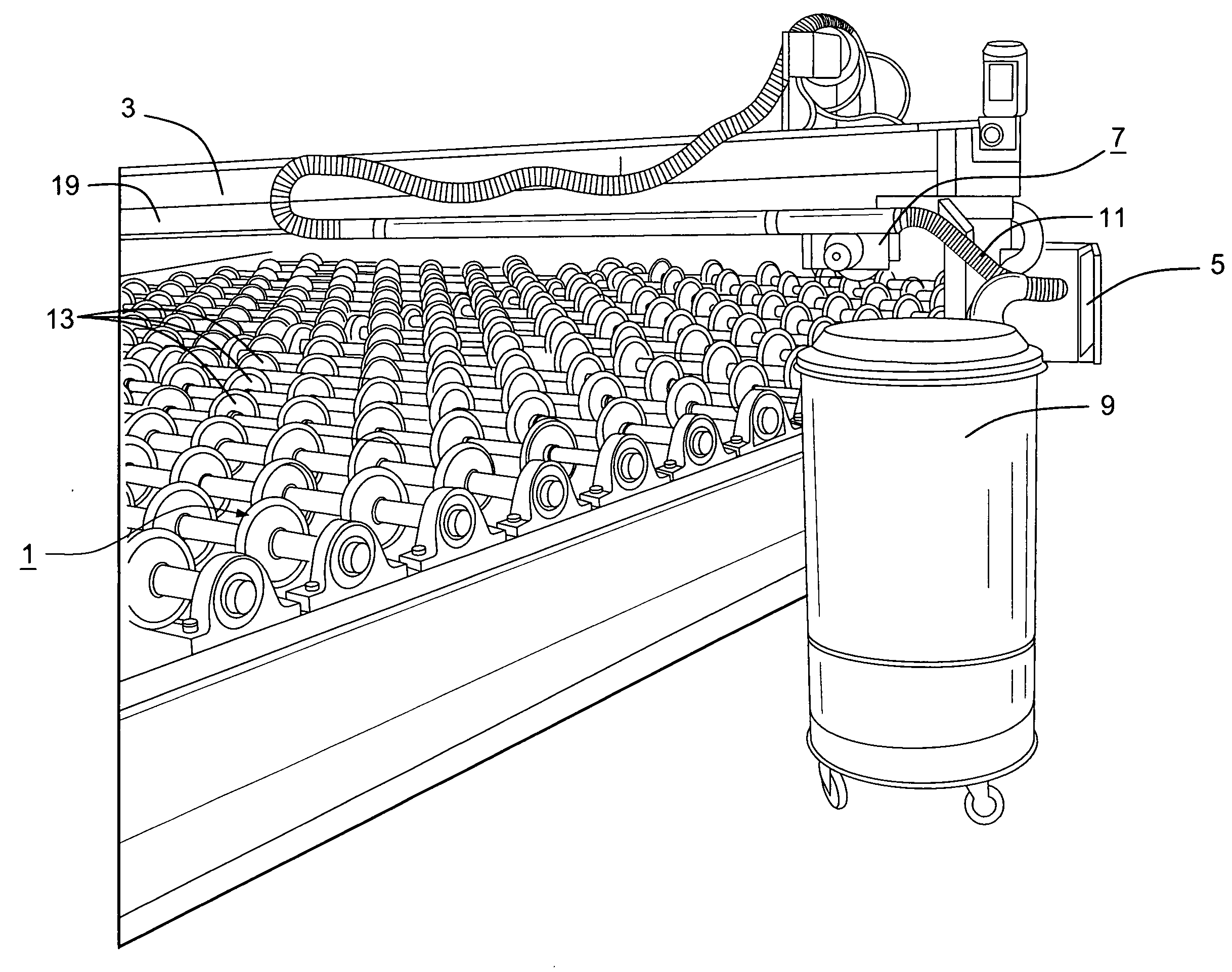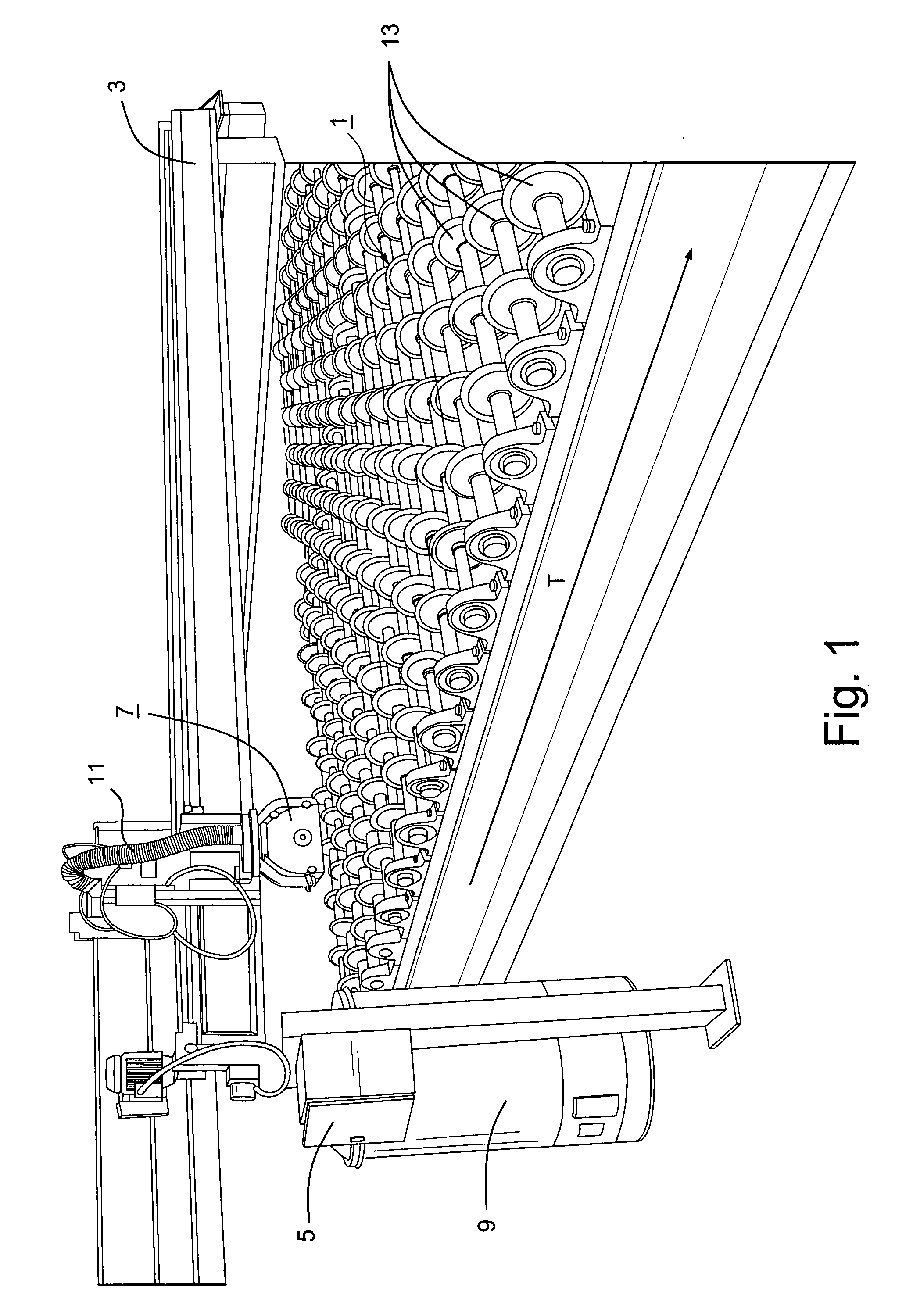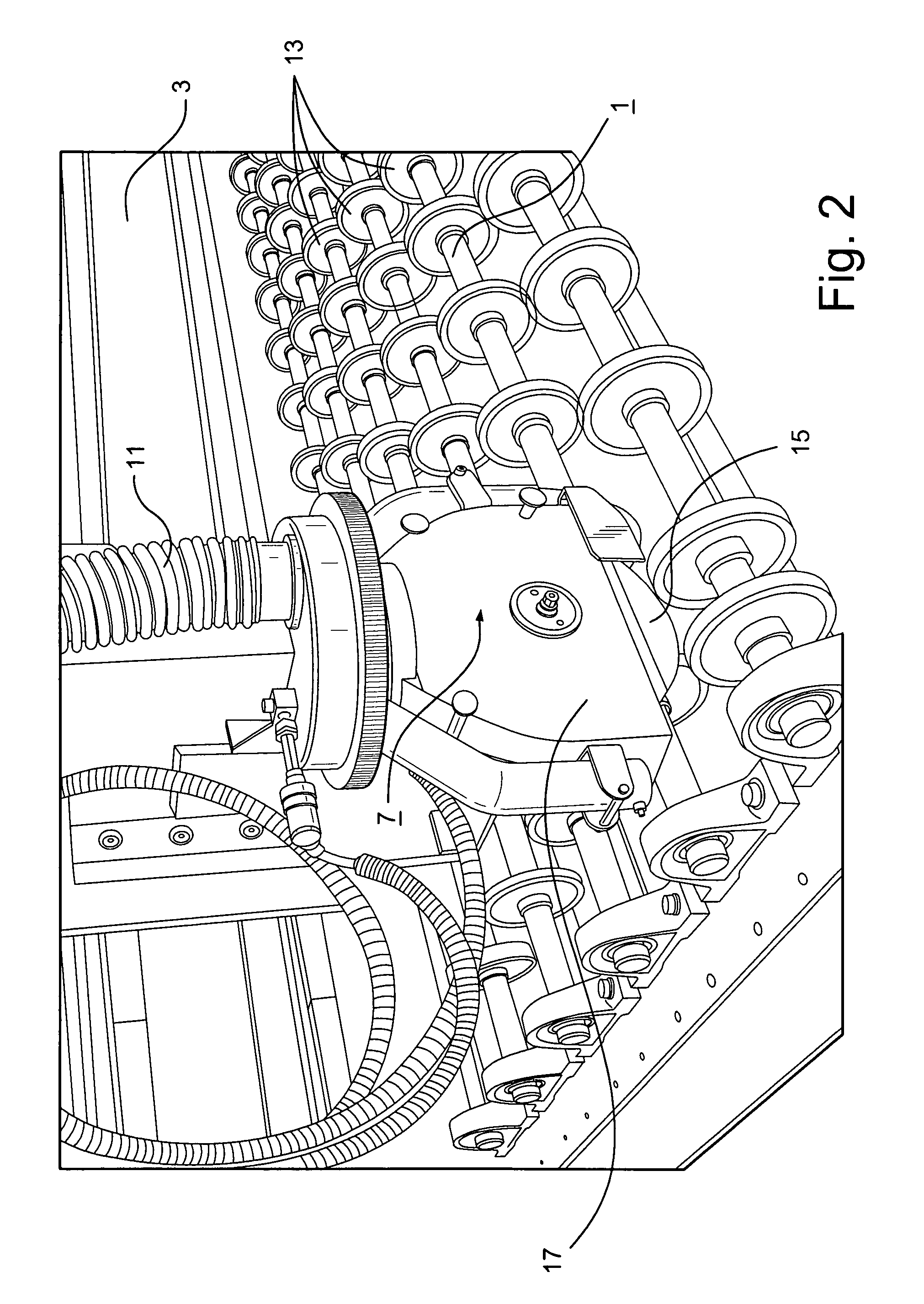Techniques for debris reduction when performing edge deletion on coated articles having temporary protective coatings applied thereto
a coating and coating technology, applied in the direction of grinding/polishing apparatus, grinding machine components, grinding machines, etc., can solve the problems of high risk of damage, easy high risk of damage to the coating side of the coating sheet, so as to reduce the scattering of debris, reduce yield, and easy removal
- Summary
- Abstract
- Description
- Claims
- Application Information
AI Technical Summary
Benefits of technology
Problems solved by technology
Method used
Image
Examples
Embodiment Construction
[0020]Certain example embodiments of this invention relate to techniques for debris reduction when performing edge deletion on coated articles having temporary protective coatings applied thereto. In certain example embodiments, a stationary (at least in operation), enlarged, and higher powered aspirator connected to flexible tubing, which itself has an enlarged diameter, that has a nozzle located proximate to a grinding wheel on an edge deletion unit is provided in connection with an edge deletion table. Advantageously, the edge deletion table and aspirator of certain example embodiments are capable of performing edge deletion and removal of a temporary protective coating substantially simultaneously, e.g., at a common area of interest, during which process the debris produced when edge deletion is performed is controlled and removed from the substrate of interest.
[0021]Referring now more particularly to the accompanying drawings in which like reference numerals indicate like parts...
PUM
| Property | Measurement | Unit |
|---|---|---|
| power | aaaaa | aaaaa |
| diameter | aaaaa | aaaaa |
| diameter | aaaaa | aaaaa |
Abstract
Description
Claims
Application Information
 Login to View More
Login to View More - R&D
- Intellectual Property
- Life Sciences
- Materials
- Tech Scout
- Unparalleled Data Quality
- Higher Quality Content
- 60% Fewer Hallucinations
Browse by: Latest US Patents, China's latest patents, Technical Efficacy Thesaurus, Application Domain, Technology Topic, Popular Technical Reports.
© 2025 PatSnap. All rights reserved.Legal|Privacy policy|Modern Slavery Act Transparency Statement|Sitemap|About US| Contact US: help@patsnap.com



